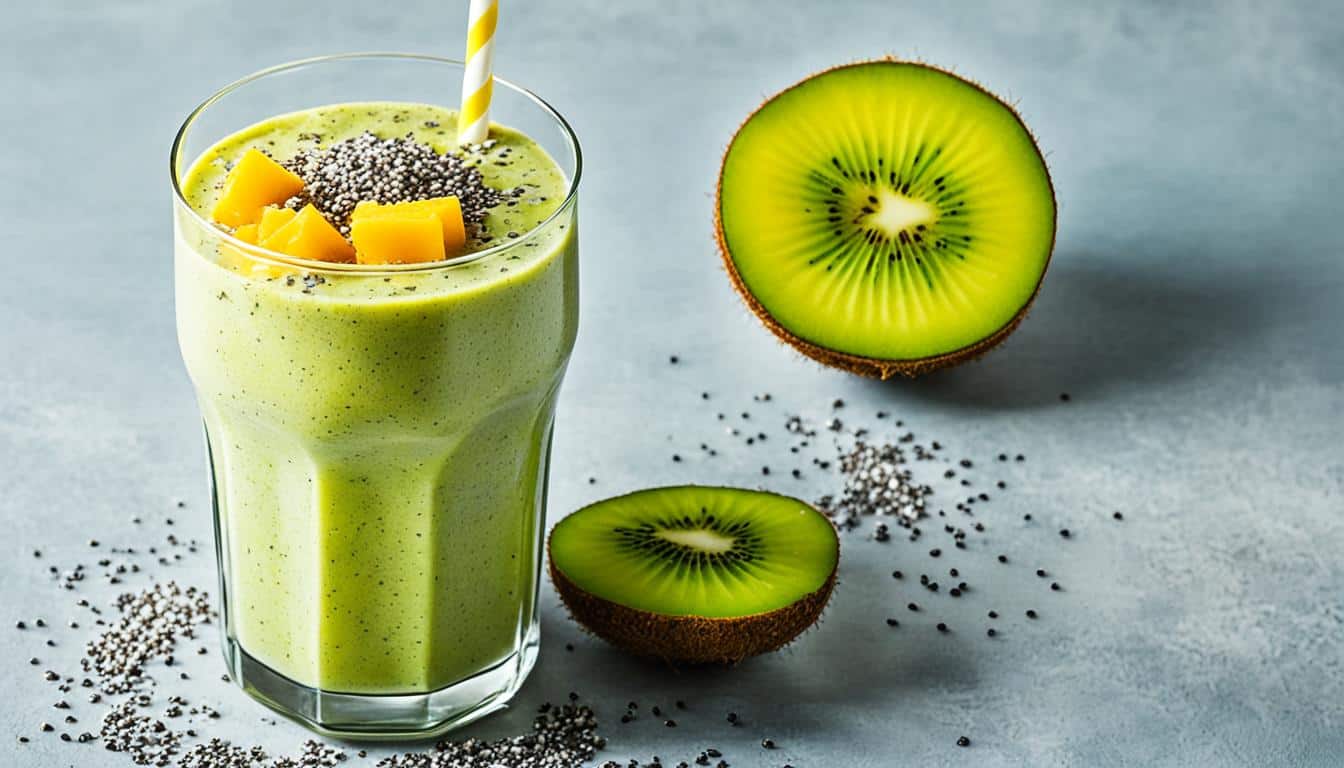In today’s fast-paced world, finding balance and nourishment for the body, mind, and spirit is key. I’ve learned the power of a holistic approach that covers all aspects of well-being. By adding holistic practices to my daily life, I’ve seen better physical health, mental clarity, emotional balance, and spiritual fulfillment.
A few years ago, I struggled with low energy, mood swings, and feeling unwell. My diet was full of processed foods, lacking essential nutrients. This made me realize the importance of a healthy diet for my well-being.
I started making small changes towards a holistic lifestyle by eating more mindfully. I chose whole, nutritious foods over fast ones. Over time, I noticed big improvements in my health.
My physical health got better, with more energy and a stronger immune system. My mental and emotional health also improved. I learned how important it is to connect the body, mind, and spirit for true health.
Studies show that eating well can lower the risk of many diseases. Eating right can help prevent cancer and heart disease. Not getting enough nutrients like vitamin D and calcium can lead to osteoporosis.
Research also links good nutrition to better mental health. Not having enough vitamins B12, folate, and vitamin D can increase the risk of depression and cognitive decline. But eating foods rich in fruits, veggies, whole grains, lean proteins, and healthy fats can help prevent depression.
I now focus on a balanced lifestyle, eating well, exercising, keeping a healthy weight, drinking less alcohol, and not smoking. These habits can add over a decade to one’s life. I’m committed to this approach for my health.
To keep improving, I try new holistic therapies and mindfulness. I also value community and unity through shared meals and cultural food traditions.
This article aims to inspire you to improve your health too. Let’s start a journey of holistic nutrition together. We can enrich our lives and achieve better health for our bodies, minds, and spirits.
Key Takeaways:
- Adopting a holistic lifestyle approach can enhance overall health by addressing the interconnected aspects of physical, mental, and spiritual well-being.
- Taking small, consistent steps towards a holistic lifestyle, such as practicing mindfulness, exploring holistic therapies, and making gradual adjustments to dietary habits, can lead to sustainable changes.
- A healthy diet, regular exercise, maintaining a healthy weight, limiting alcohol intake, and not smoking are key habits that can add over a decade to one’s life compared to those who do not adhere to these practices.
- Holistic nutrition has a significant impact on mental health, with links between a diet high in fruits, vegetables, whole grains, lean proteins, and healthy fats and a lower risk of depression.
- Shared meals and cultural food practices play a vital role in fostering a sense of community and unity, promoting inclusivity and appreciation for different cultures.
The Benefits of Holistic Living
Holistic living is a way to take care of your whole self. It combines physical, mental, emotional, and spiritual health. This approach helps you live a balanced and happy life.
Physical Health
Holistic living is great for your body. It focuses on eating right, exercising, and getting enough sleep. These habits boost your energy, help your immune system, and prevent diseases.
Mental Health
It also looks after your mind. With mindfulness and meditation, you get clearer thoughts, better focus, and more awareness. These practices reduce stress and make you mentally stronger.
Emotional Health
Feeling good emotionally is key in holistic living. It teaches you to know yourself better and handle tough times well. This leads to more happiness and a sense of purpose.
Spiritual Health
Lastly, it focuses on your spiritual health. Through meditation and gratitude, you feel deeply connected. This brings peace, fulfillment, and a clear sense of direction.
Living holistically brings many benefits to your life. It combines all aspects of health for a balanced and rewarding life.
Key Principles of Holistic Nutrition
Holistic nutrition focuses on feeding the body and boosting overall health with a balanced diet. It takes a holistic view of health. Food deeply affects our physical, mental, and emotional health. Holistic nutritionists use key principles to guide their work. They help people improve their nutrition and lifestyle choices.
1. Emphasizing Whole Foods
Whole foods are key in holistic nutrition. They are processed less and are closer to their natural state. These foods give us many nutrients like vitamins, minerals, antioxidants, and fiber. Fruits, veggies, whole grains, lean proteins, and healthy fats should be the base of our diet.
2. Mindful Eating and Moderation
Mindful eating is vital in holistic nutrition. It means listening to our hunger and fullness signals, enjoying each bite, and eating without distractions. Holistic nutritionists suggest eating slowly, chewing well, and listening to our body’s fullness cues. They also teach moderation, allowing for treats while keeping a nutritious diet.
3. Customized Meal Planning and Variety
Everyone has different dietary needs and likes. Holistic nutritionists create meal plans that fit these needs, dietary limits, and lifestyle. Eating a variety of foods helps get all the nutrients we need for good health.
4. Hydration and Nutrient Balance
Drinking enough water is key for health, and holistic nutritionists stress its importance. They also help balance our diet with the right mix of carbs, proteins, and fats. This ensures we get all the nutrients we need.
5. Supporting the Body’s Natural Healing
Holistic nutritionists believe in gentle treatments that help the body heal on its own. They focus on finding and fixing the root causes of health problems with nutrition and lifestyle changes. This approach avoids just treating symptoms.
6. Education and Empowerment
Teaching clients about health and empowering them to make good choices is central to holistic nutrition. Holistic nutritionists give people the knowledge and tools to see how nutrition affects their health. They teach healthy habits and strategies for a healthy life, helping people take charge of their health.

Using these holistic nutrition principles can nourish your body and support your health. Working with a holistic nutritionist can give you personalized advice for your needs and goals. This helps you make lasting and positive health choices.
The Connection between Holistic Nutrition and Mental Health
Holistic nutrition shows how food affects our mental health. What we eat impacts our brain, mood, and emotions. Eating foods full of vitamins, minerals, and healthy fats helps our mental health and life quality.
Our gut and brain are closely linked, as shown by the gut-brain axis. Our diet can change our gut microbiome, which affects our mental health. Foods high in prebiotic fiber and probiotics help our gut. This leads to better emotional health and mental strength.
The Role of Nutrition in Mental Health
- Mental Health and B Vitamins: B vitamins are in leafy greens, whole grains, and legumes. They help make neurotransmitters and give us energy. Not having enough B vitamins can make us feel depressed. So, eating these foods is key.
- Omega-3 Fatty Acids and Mood: Omega-3s are in fatty fish, flaxseeds, chia seeds, and walnuts. They help with depression and anxiety. These fats are vital for brain health and keeping our mood stable.
- Refined Sugar and Mental Health: Too much sugar and processed foods can lead to depression and anxiety. Cutting down on these foods helps our mental health and overall health.
- Magnesium for Relaxation: Magnesium is in nuts, seeds, greens, and dark chocolate. It helps calm our nerves and relax us. We need enough magnesium to stay mentally healthy.
Making dietary changes, like eating more whole foods and less processed ones, is key to fighting depression. These changes shouldn’t replace traditional treatments, but they can help along with therapy and medicine.
Nutritional counseling offers personalized advice on eating right. It helps people with depression make lasting changes. Sticking to these changes can be hard, but with support, it’s possible to live a healthier life that boosts mental health.

Creating a Sense of Community through Food
Food has a unique power to bring people together and build community. Sharing meals lets us feed our bodies and connect with others deeply.
When we sit down to eat, we make and strengthen social bonds. It’s a chance to talk, share stories, and make memories. Sharing a meal creates a feeling of belonging and unity.
Cultural traditions are key in food-based community bonding. Every culture has its own food ways and tastes. Sharing these through potlucks or cooking classes helps us learn and appreciate different cultures. This brings people together and builds unity.
Activities like community gardens and food cooperatives help us work together. They teach us new skills and build strong community ties. By growing, harvesting, and sharing food, we learn and support each other.
Through holistic nutrition and community efforts, we can spark big social changes. Choosing local and organic food helps our health and the planet. This encourages others to act for a better future.
Let’s value food’s power to connect us and make a difference. By sharing meals, celebrating traditions, and joining food activities, we build social bonds. This makes our communities stronger and more inclusive.

Conclusion – Nurturing a Balanced and Nourishing Lifestyle
Holistic nutrition is all about looking at how our eating affects our overall health. It sees the link between our physical, mental, and emotional health. By using this method, we can live a balanced life that boosts our well-being.
To live holistically, we focus on eating whole foods and eating mindfully. Regular exercise, enough sleep, and a good work-life balance are key. Taking care of ourselves is also important.
These habits help our body and mind work better. We feel more energetic, clear-headed, emotionally stable, and spiritually connected.
Supplements and certain foods are vital for our health. They fill nutritional gaps and help our body handle stress. They also support joint health, digestion, and our immune system. Plus, they help us stay calm and support our nervous system.
But it’s not just about what we eat. How we eat and our lifestyle matter too. Holistic nutrition teaches us to value our emotional health and our relationship with food.
By focusing on nutrition and well-being in a holistic way, we improve our physical, mental, and emotional health. Eating mindfully connects us more with our food and ourselves. Adding practices like yoga and meditation nourishes our soul too.
In the end, a holistic approach to eating and living leads to a happier, healthier life. It makes us feel fulfilled.


